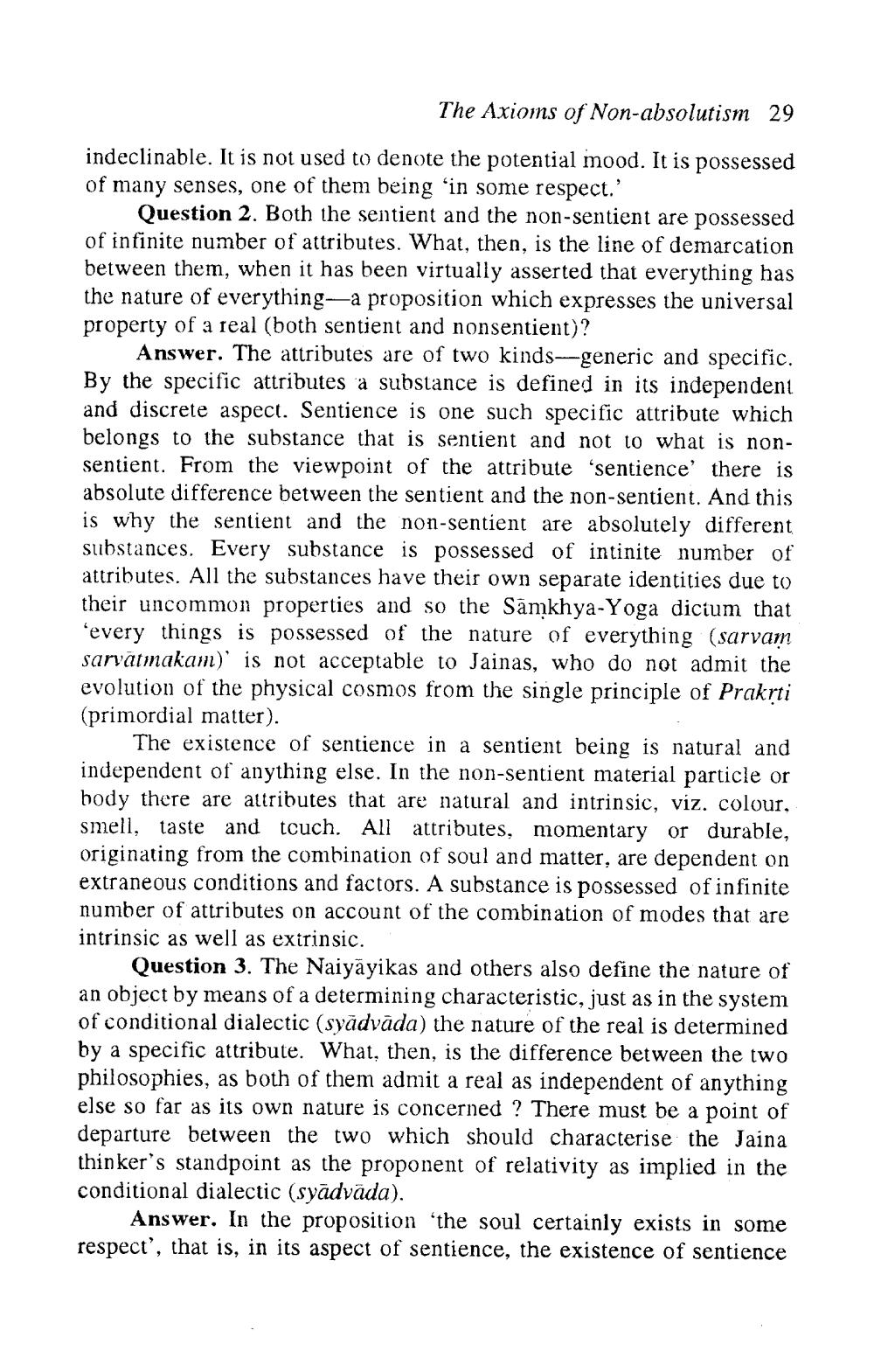________________
The Axioms of Non-absolutism 29
indeclinable. It is not used to denote the potential mood. It is possessed of many senses, one of them being 'in some respect.'
Question 2. Both the sentient and the non-sentient are possessed of infinite number of attributes. What, then, is the line of demarcation between them, when it has been virtually asserted that everything has the nature of everything—a proposition which expresses the universal property of a real (both sentient and nonsentient)?
Answer. The attributes are of two kinds--generic and specific. By the specific attributes a substance is defined in its independent and discrete aspect. Sentience is one such specific attribute which belongs to the substance that is sentient and not to what is nonsentient. From the viewpoint of the attribute 'sentience there is absolute difference between the sentient and the non-sentient. And this is why the sentient and the non-sentient are absolutely different substances. Every substance is possessed of intinite number of attributes. All the substances have their own separate identities due to their uncommon properties and so the Samkhya-Yoga dicium that
every things is possessed of the nature of everything (sarvam sarvatmakam)' is not acceptable to Jainas, who do not admit the evolution of the physical cosmos from the single principle of Prakrti (primordial matter).
The existence of sentience in a sentient being is natural and independent of anything else. In the non-sentient material particle or body there are attributes that are natural and intrinsic, viz. colour, smell, taste and touch. All attributes, momentary or durable, originating from the combination of soul and matter, are dependent on extraneous conditions and factors. A substance is possessed of infinite number of attributes on account of the combination of modes that are intrinsic as well as extrinsic.
Question 3. The Naiyāyikas and others also define the nature of an object by means of a determining characteristic, just as in the system of conditional dialectic (syadvāda) the nature of the real is determined by a specific attribute. What, then, is the difference between the two philosophies, as both of them admit a real as independent of anything else so far as its own nature is concerned ? There must be a point of departure between the two which should characterise the Jaina thinker's standpoint as the proponent of relativity as implied in the conditional dialectic (syadvada).
Answer. In the proposition the soul certainly exists in some respect', that is, in its aspect of sentience, the existence of sentience




